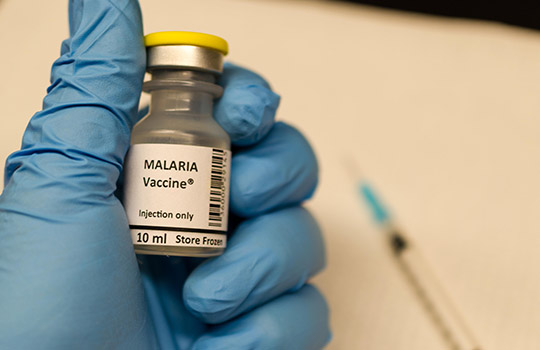Malaria Vaccine Explained
Following the Shadowy Barrier: Exposing the Difficulties and Potential of Malaria Vaccines
Malaria is a parasite disease spread by mosquitoes that affects millions of people worldwide. While preventive measures are important, a reliable vaccination has the potential to control malaria over the long run and eventually eradicate it completely. This blog explores the history of malaria vaccination development, the effectiveness of current treatments, and upcoming obstacles.
Table of Contents

The Development of Malaria Vaccines: A Protracted Journey
Malaria Vaccine Explained
The quest to create a vaccine against malaria has lasted for many years. There are several obstacles because of the intricate life cycle of Plasmodium parasites and the range of immunological reactions they provoke. Here’s an overview of the various phases of vaccine development:
- Pre-erythrocytic vaccines: work by preventing the infectious form of the parasite—sporozoites—from invading liver cells before they are injected by mosquitoes.
- Blood-Stage Vaccines: These are designed to stop parasites from growing and spreading disease by attacking them while they are still in the blood stage of infection.
- Vaccines that block transmission: these work to stop the growth of adult sporozoites in mosquitoes, halting the spread of infection even in cases when an individual becomes infected.
A Glimmer of Hope: The vaccination against RTS and S
Malaria Vaccine Explained
As the most advanced malaria vaccine candidate, RTS,S targets the circumsporozoite protein (CSP) on sporozoites.
- Efficacy and Difficulties: Extensive clinical trials showed a moderate (about 40%) level of efficacy in averting hospitalization and severe malaria in young children. But as time passes, the defense weakens and booster doses become necessary.
- Approval and Implementation: The RTS,S vaccine is advised for use in children residing in regions with moderate to high malaria transmission rates by the World Health Organization (WHO). In many places, however, access and implementation are still restricted.
Overcoming Obstacles: Difficulties in the Development of Vaccines for Malaria
Malaria Vaccine Explained
There are still a number of obstacles standing in the way of creating a highly effective malaria vaccine:
- Parasite Complexity: The complexity of Plasmodium parasites’ life cycles and wide range of antigenic variants provide challenges to the development of a single vaccine that is effective against all strains of the parasite.
- Immune Response: It is still difficult to elicit a strong and enduring immune response against malaria parasites.
- Research and Funding: Since malaria typically strikes areas with minimal resources, it is challenging to maintain funding for the development of vaccines.
Anticipating the Future: Malaria Vaccines
Malaria Vaccine Explained
Despite the difficulties, scientists are still looking into possible directions for the development of a malaria vaccine:
- Next-Generation vaccinations: Research is being done to create vaccinations that combine several antigens for greater protection and target distinct phases of the parasite life cycle.
- vaccination adjuvants: These compounds have the ability to strengthen the immunological response that a vaccination elicits, hence improving the vaccine’s effectiveness and length of protection.
- Technological developments: The development of more potent malaria vaccinations may be possible with the use of cutting-edge technology like genetic engineering and viral vectors.
In summary: A Joint Obligation for a Future Free of Malaria
Malaria Vaccine Explained
To achieve malaria elimination, a highly efficient vaccine must be developed and implemented. Even though there are still obstacles, continued study and cooperation give hope for a day when malaria is eradicated. This calls for consistent funding, international collaboration between academic institutions and public health organizations, and fair access to immunizations that can save lives for everyone.


